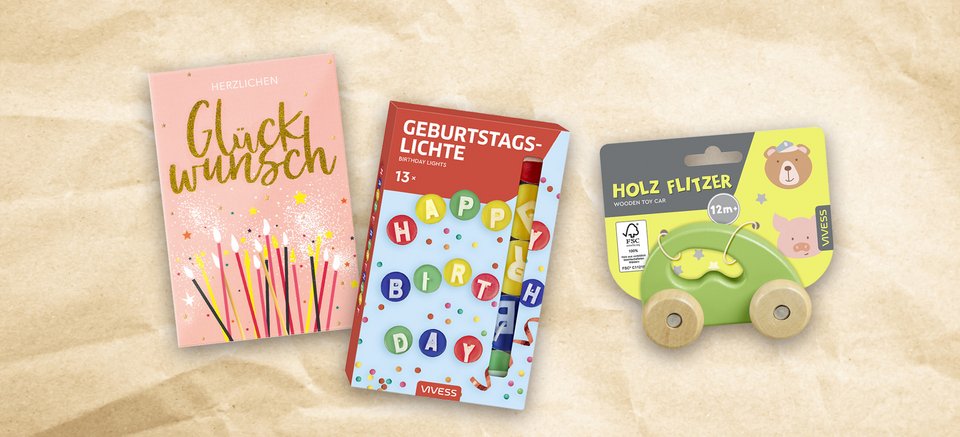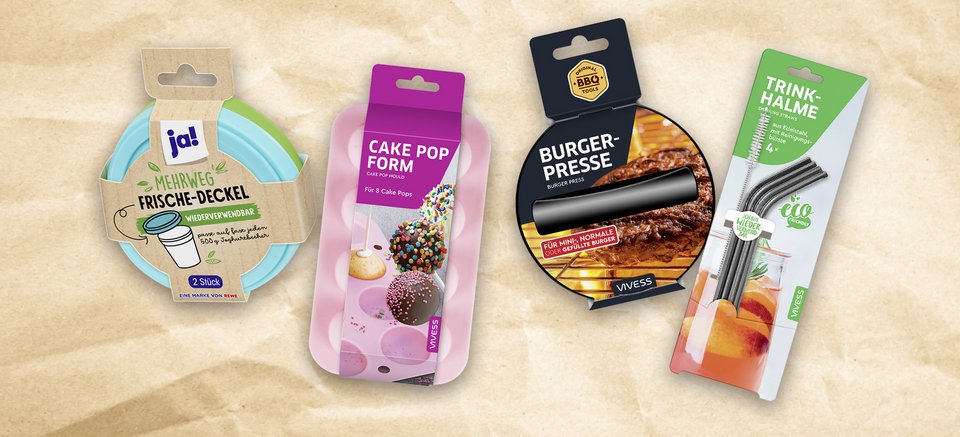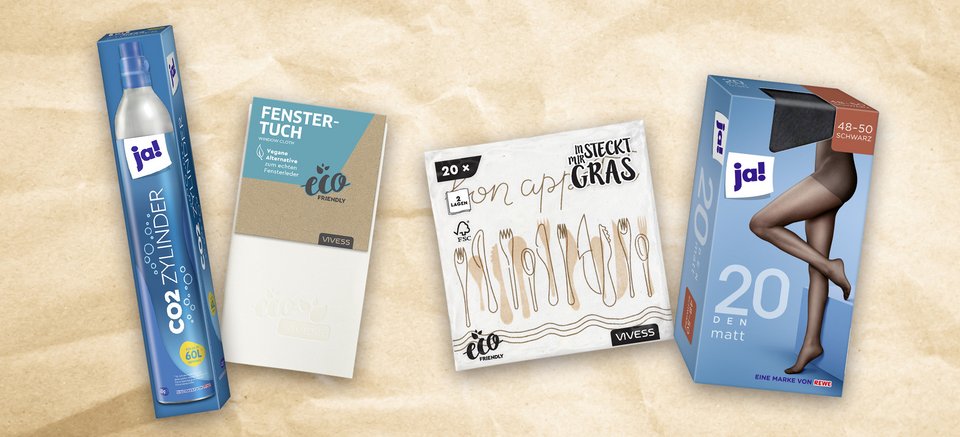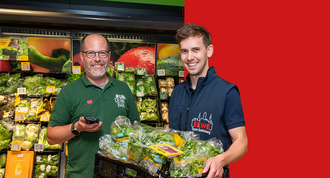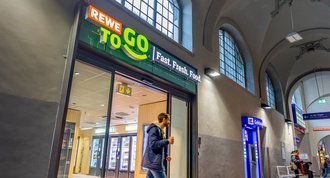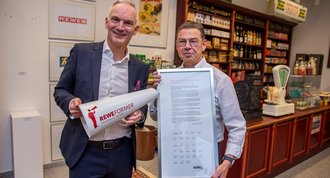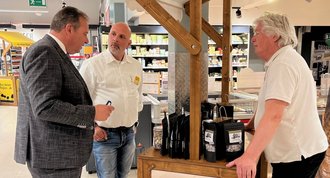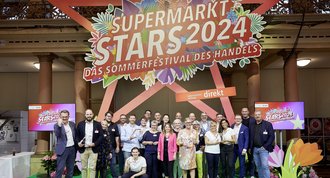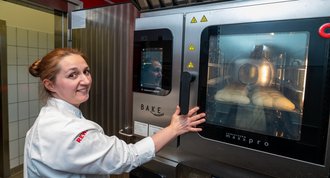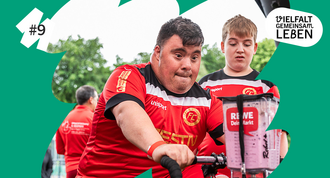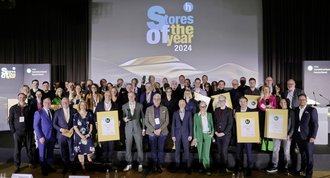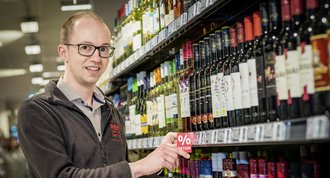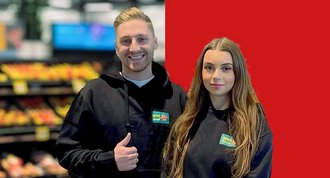
Price-sensitive, trendy, as sustainable as possible and so broadly diversified that customers no longer have to change shopping centres: REWE store brands offer a lot and have even more in store, say Tristan Finger and Rebecca Mertens, who are responsible for purchasing and packaging.
one: Mrs Mertens, Mr Finger, everything is getting more expensive and people are increasingly turning to cheaper own brands like ja! when shopping Does this trend also apply to non-food?
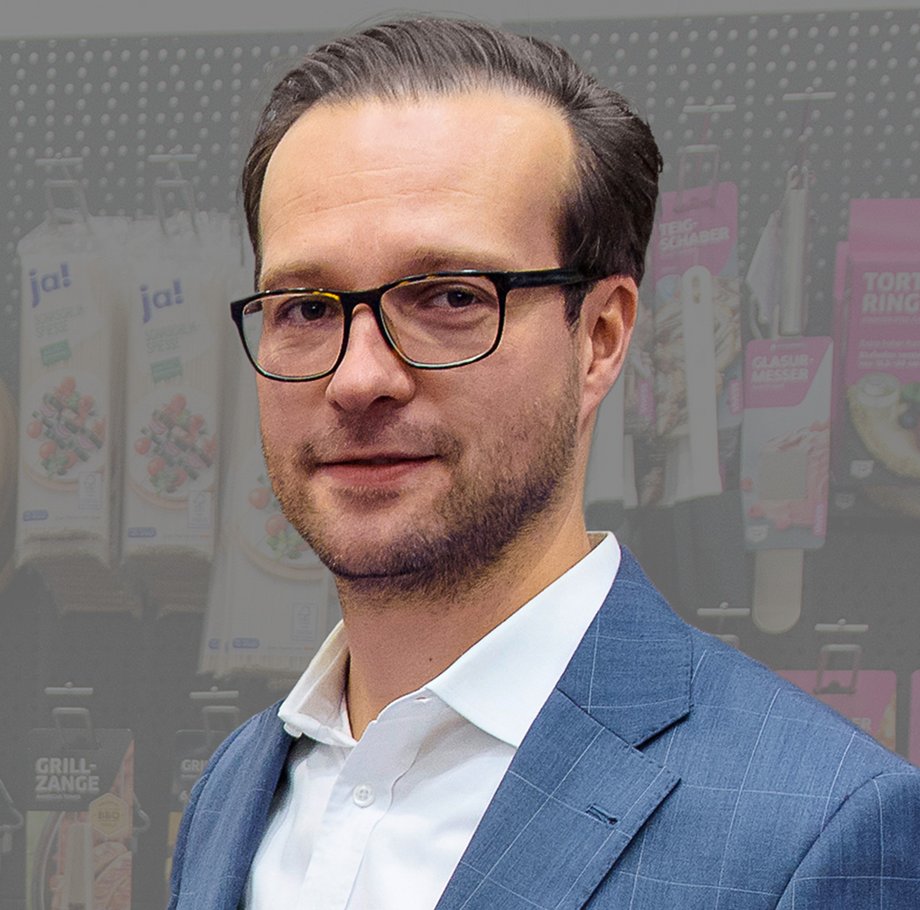 Tristan Finger
Tristan Finger: Non-food should contribute just as much to REWE's value for money as the food sector. The favourable price promise that we make with ja! naturally also applies to non-food. We have worked intensively on this own brand and introduced many new ja! products, and we now have over 160 items, including stationery, kitchen utensils, cleaning cloths, batteries and light bulbs.
Tristan Finger
Tristan Finger: Non-food should contribute just as much to REWE's value for money as the food sector. The favourable price promise that we make with ja! naturally also applies to non-food. We have worked intensively on this own brand and introduced many new ja! products, and we now have over 160 items, including stationery, kitchen utensils, cleaning cloths, batteries and light bulbs.
Rebecca Mertens: The trend is now moving towards private labels. Customers are more price-sensitive. We serve a wide variety of product ranges with all of our non-food own brands - that could be ja! or the more premium VIVESS brand. So basically everything you can't eat. From toothpicks and electrical appliances such as coffee machines to reusable baking mats and exercise books.
„We have created a broad, less deep range for one-stop shopping.“

Tristan Finger: According to the GfK market research platform, the non-food world is basically just as big as the food world. But we are a food company. For us, the trick is to know what our customers expect in terms of non-food. Luxury items are certainly less common, but food-related items such as peelers and knives are. In other words, everything for the everyday needs of our target group. We have created a very broad, but less deep range for one-stop shopping.
one: What does one-stop shopping mean?
Tristan Finger: Customers no longer have to go to other shops, drugstores or non-food discounters if they need stationery items, kitchen gadgets or dishwashing sponges. They can also get all these "non-food bread and butter" items for everyday use from us. And at the same price-performance ratio and the same quality.
one: Have you always had this goal of "suitability for everyday use" for the non-food own brands?
Tristan Finger: Yes, we did. A few years ago, we thought that customers would buy food from us but go to the drugstore for a washing-up brush. That's actually rubbish, we can do these ranges just as well.
So we put the quality, design and price of all our product ranges through their paces with the aim of ensuring that customers no longer have to go to the competition.
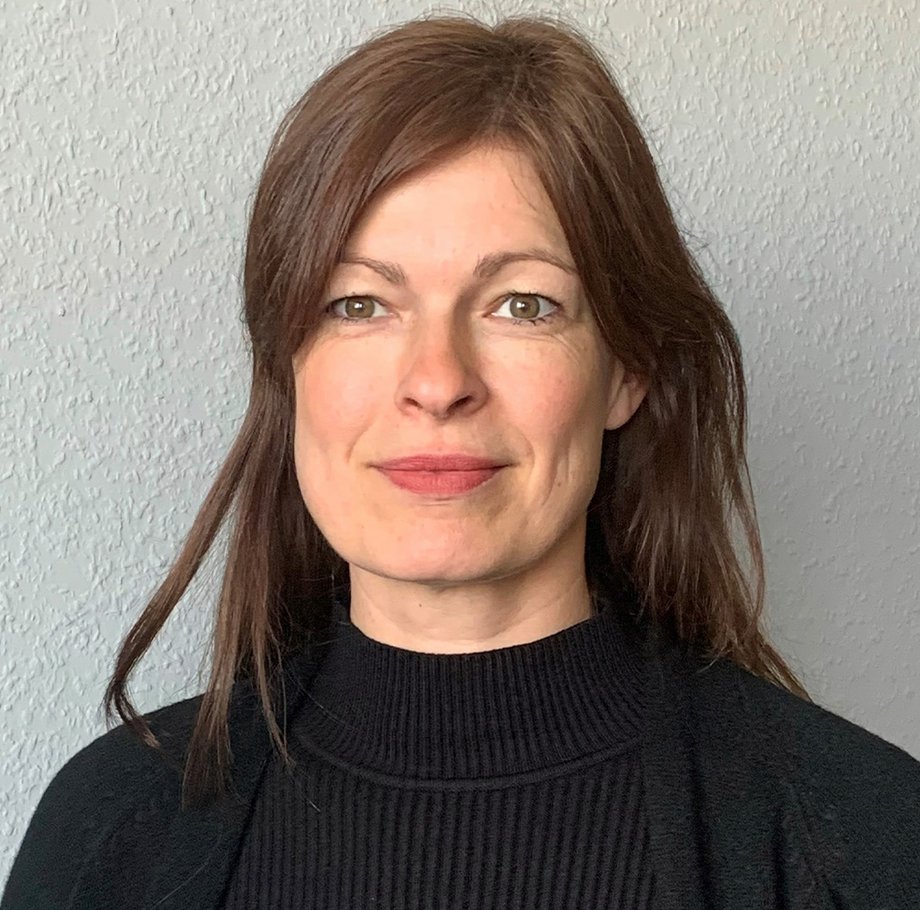 Rebecca Mertens
Rebecca Mertens: In recent years, we have turned 600 articles and packaging inside out, created a colour coding system for better orientation at the POS and made the packaging layouts more emotional and modern.
Rebecca Mertens
Rebecca Mertens: In recent years, we have turned 600 articles and packaging inside out, created a colour coding system for better orientation at the POS and made the packaging layouts more emotional and modern.
Tristan Finger: Less is more: customers want to find the non-food product they are looking for quickly and at a reasonably good price so that they can get back to their grocery shopping.
one: You say that the non-food trend is "private label". How do you cater for this trend?
Tristan Finger: Firstly, with new segments. in 2023, there will be a small do-it-yourself range, a kind of "emergency handyman" with pliers, folding rule and bit set. We are also coming up with a range of toys, which will mainly include small confectionery alternatives and souvenirs for around 5 euros.
„In addition to the new price sensitivity, Sustainability continues to play a major role.“

On the other hand, we are increasingly focussing on direct sourcing. We now import many of our own brands via REWE Far East, we go directly to the factory in Asia, for example, and thus optimise the value chains. This guarantees lower prices and more transparency in terms of costs.
one: Are there any other trends?
Rebecca Mertens: In addition to the new price sensitivity, Sustainability continues to play a major role: as little or no packaging as possible, as environmentally friendly disposal as possible.
We have a 3-year guarantee for our own electrical brands and have scrutinised the entire range, i.e. all 600 items, with regard to packaging: Where can we save as much packaging as possible or eliminate it altogether? There is hardly any blister packaging left and we only use FSC-certified paper.
Tristan Finger: For our disposable products, we have now developed reusable alternatives or sustainable disposable products made from sugar cane or wood. And we now offer a vegan chamois leather.
Rebecca Mertens: We were the first to sort out our plastic straws and replace them with three alternatives - glass, paper and stainless steel. Personally, I'm always delighted when we manage to replace a disposable item with a reusable one.
Tristan Finger, is Head of Purchasing Nonfood Full-range
Rebecca Mertens, Head of Private Label Nonfood REWE, is responsible for the entire packaging design, among other things
REWE brings together the non-food range under the umbrella of two own brands: the entry-level price items under ja! and the slightly more premium items under VIVESS.
The VIVESS items include household classics such as vegetable knives, hoover filters, dishwashing sponges, birthday candles and smaller electrical items, as well as trendy items such as the cake pop mould, the vegan window cloth and the burger press.
Sustainability is playing an increasingly important role, with the eco friendly logo offering a range of articles that are reusable and made from renewable, recycled or alternative raw materials, such as the eco dishcloth or the grass napkin. All paper products from the stationery range are made from renewable raw materials.
The ja! range offers a wide non-food range for entry-level prices, from A for cubes to Z for sparkling water cylinders. Sustainability aspects also play a role here with numerous articles.

